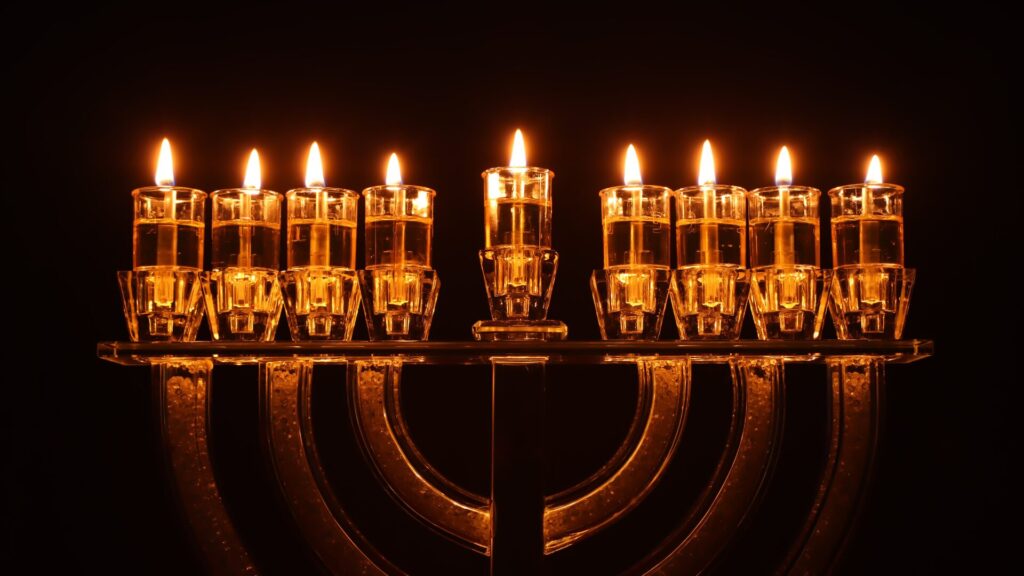I find my wife in the bathroom crying. Not a huge, demonstrative, ugly cry. No, this was the silent kind, where tears stream quietly out of your eyes and slide across a desolate cheek in search of hope in despair.
“Are you OK?” I ask. It’s one of the stupidest questions we tend to ask in these situations, but it usually comes out when we don’t know what else to say.
She doesn’t say anything. She just holds up a small white stick.
I know what it is. In that simple gesture she has communicated a lot. She’s not pregnant. Again.
This is the third test she’s taken in the past few weeks.
“Baby, you have to stop doing this to yourself,” I tell her.
Infertility. It’s hard when you’re a Christian. So many heroes of faith mentioned in the Bible were barren or had mothers who were until they came along. Abraham and Sarah, the parents of Isaac and many nations; Hannah, mother of Samuel; Elizabeth, the mother of John the Baptist; Samson’s mother, and more.
It seems that for the barren women in the Bible, there is always a miracle. As a person of faith, you hold onto the belief that your miracle is always just around the corner. The problem is that they are called miracles for a reason. They are not the norm, not to be expected—they’re recorded in the Bible because they were miraculous and unexpected. So what if there isn’t a miracle for you? Does it mean your faith is less?
My wife has a health condition which means it’s hard for her to fall pregnant. I said hard, not impossible. So there still is a chance. And while there is a chance we remain in limbo.
It’s a difficult place to dwell. I once asked my wife what her greatest fear was. I was expecting something usual like heights or spiders. She looked at me thoughtfully and said, “Not ever having the experience of carrying a child.” The comment took me by surprise. I realised then how deeply this fear impacted her.
Do I believe in the power of prayer? Yes, definitely. Do I believe we can fall pregnant? 100 per cent. Will it happen? It may not, and that not knowing is something we both have to process. The problem is that it’s easy to believe that your faith is not enough (see Deuteronomy 28:2-4).
A cyclone of emotions whirls around. Guilt for the past, blaming yourself or your partner and—especially subconsciously—blaming God, hoping against hope, giving up hope and then starting the cycle again.
Other people have their miracles. Close friends announce pregnancy news while you grin and try to be excited for them. But really you’re struggling to keep it all together. [pullquote]
I haven’t given up hope. But I wrestle with these questions often. Do I pray about it? I do now. For a long time I couldn’t because I felt like I was unworthy, like it was something I had done or hadn’t done. As a human I try to justify the situation and make myself feel better. I tell myself we’ll have more money, can travel more, be free for mission or ministry. Maybe God has a plan for us that doesn’t involve children. We’ve talked about other options, including adoption.
So I am somewhat at peace but still unsettled. I know I’m whole in Christ but my family doesn’t feel whole. And what can I say to my wife?
We are seeking treatment, trying to live healthier and praying for our miracle. But after six years and as we get older, the risk of complications increases and it soon might be too late.
So I want to take this opportunity to acknowledge all those who have struggled with infertility and childlessness, all those who have wondered if there is something missing or wrong with them, all those who have cried in the bathroom after another negative result.
I don’t have the answer. I haven’t found it yet and my wife and I may never find it. But I know God sees us. I know He hears our prayers. I know He loves us. And all I can do is pray and hope.






